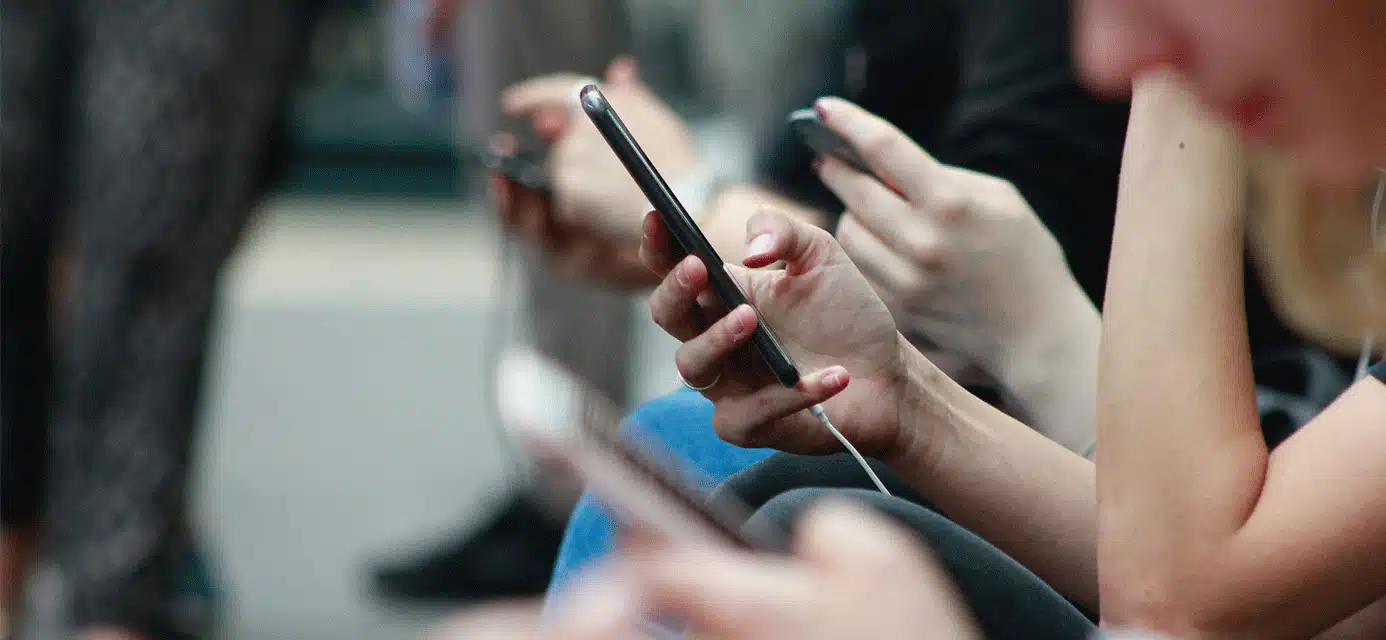A new study on depression finds that Generation Z—young adults born in the mid-1990s and early 2000s—has experienced a dramatic rise in psychological distress and depressive symptoms. In fact, the researchers found that increases in Gen Z depression are more significant than in any other age group.
Why is this generation at risk? The authors of the study suggest that two major factors may be at play: increased screen time and a corresponding rise in sleep deprivation. It’s no coincidence, they say, that the greatest spike in Gen Z depression symptoms occurred in 2011, around the same time smartphones were becoming widespread.
Findings of the Gen Z Depression Study
The new study, published in March, was led by Jean Twenge, PhD, author of iGen: Why Today’s Super-Connected Kids Are Growing Up Less Rebellious, More Tolerant, Less Happy—and Completely Unprepared for Adulthood.
In particular, they studied self-reported depression and distress among 600,000 people of all ages who took the survey from 2005 to 2017. Moreover, they looked at suicidal thoughts and attempts reported by survey participants. They discovered that the rate of distress, depression, and suicidal ideation rose for all age groups over 18. However, this rise was much more dramatic among young adults.
The findings of the study include the following Gen Z depression statistics:
- The number of young adults ages 18 to 25 who experienced serious psychological distress in the 30 days before the survey increased by 71 percent from 2008 to 2017. This increase was most extreme in adolescents ages 20 and 21.
- Symptoms of major depression in the year before the survey rose 52 percent in adolescents from 2005 to 2017 and 63 percent (from 8.1 to 13.2 percent) in young adults age 18 to 25 from 2009 to 2017.
- Furthermore, between 2008 and 2017, suicides among young adults ages 18 and 25 grew 56 percent. Suicidal ideation rose by 68 percent. In that same time frame, suicide attempts rose 87 percent among 20- and 21-year-olds and 108 percent among 22- and 23-year-olds.
Factors Contributing to Generation Z Depression
In parsing the results of the study, Twenge and her team considered whether income inequality, the 2008 economic crisis, and/or school shootings might be responsible for the alarming increases. However, the data did not support these theories.
Ultimately, the researchers concluded that the pervasiveness of social media in particular and technology use in general has had a significant negative effect on teens and young adults since the mid-2000s. And Generation Z—also know as iGen—has taken the brunt of the impact.
“When you think of how lives have changed from 2010 to 2017, a clear answer is that over time, people started spending more time on phones and on social media, less time face-to-face with their friends, and less time sleeping. As we know from other studies, spending more time with screens, less time sleeping, and less time face-to-face with friends is not a good formula for mental health.”
—Jean Twenge, PhD, lead study author

The Impact of Social Media on Teen and Young Adult Mental Health
Prior to the Gen Z depression study, Twenge and her collaborators published research on the link between social media and depression. They found that psychological well-being suddenly decreased after 2012, when smartphone use became common. According to their social media and depression statistics, adolescents who spent more time on social platforms, texting, and gaming had lower psychological well-being. And adolescents who spent more time on non-screen activities (such as in-person social interaction, sports, exercise, and homework) were the happiest.
Another of Twenge’s studies looked at the links between smartphones and depression among children and teens ages 14 to 17. Hence, she found that teens who used social media seven hours per day (versus one hour) were more than twice as likely to have been diagnosed with depression, treated by a mental health professional, or taken medication for a psychological or behavioral issue during the last year.
Twenge’s work contributes to a large body of social media and depression studies. In another representative study of young adults, researchers found that the more time the adolescents spent on Facebook, the more their life satisfaction levels declined. This may be due to the fact that online social comparison is associated with depressive symptoms among adolescents.
How Sleep Deprivation Impacts Mood
In addition to social media use, sleep deprivation in teens may also contribute to Gen Z depression. Sleep deprivation can take a high toll on teenagers and young adults.
In a study of nearly 28,000 high school students, scientists found that each hour of lost sleep was associated with a 38 percent increase in the risk of feeling sad or hopeless, and a 58 percent increase in suicide attempts. And an ongoing lack of sleep over time has the potential to not only increase depressive symptoms, but also contribute to risk-taking behaviors and substance abuse.
Matthew T. Feldner, professor of psychology at the University of Arkansas, found that sleep loss has a negative impact on emotional regulation. Therefore, teens and young adults who get less sleep will be more likely to have extreme emotional responses to daily events.
Sleep Loss, Smartphone Use, and Gen Z Depression
Smartphone use, sleep deprivation, and depression are closely connected. Biological factors come into play as well. The artificial blue light emitted by smartphones activates arousing neurons in the brain, disrupting the body’s ability to produce the sleep-inducing hormone melatonin. Consequently, smartphone use prevents teens from getting the sleep they need.
Furthermore, adolescents who choose scrolling over sleeping are at higher risk for depression. Elizabeth Englander, a professor of psychology at Bridgewater State University in Massachusetts, conducted a 2014 study on so-called vamping—staying up late to use a smartphone and check social media. Englander surveyed 642 college freshmen and found that 42 percent of frequent vampers had struggled with depression. This is almost twice as high as the average number of American teens struggling with depression.
Loneliness May Be a Factor in Gen Z Depression
While iGen may be the most plugged-in generation, it’s also the loneliest. And smartphone use may contribute to that by reducing in-person interactions. According to a 2018 report, loneliness and social isolation are most common among young adults ages 18 to 22.
In addition, a British project called the BBC Loneliness Experiment surveyed 55,000 people and found the highest levels of loneliness in teenagers and young adults. Among 16- to 24-year-olds, 40 percent reported that they often or very often felt lonely.
Reversing Gen Z Depression Trends: What Parents Can Do
Take a digital detox as a family. Unplug for a few days, a week, or even 24 hours. When teens take an enforced break from smartphone use, they remember how much better they feel the next day.
Have a Wifi curfew. At a set time every night, turn off Internet access on all devices in the home. Without access to social media or online activity, teens won’t have a reason to stay up late on their phones.
Encourage real-life social connections. Studies show that teens and young adults with close friends have fewer symptoms of depression. In addition, they feel a sense of belonging. And they recover more quickly from stressful events.

Teach kids tools for managing stress. Meditation, breathing techniques, and positive visualizations are all effective relaxation skills for teens and young adults. Mindfulness-Based exercises help decrease anxiety, depression, and stress.
Get outside. Being out in nature—with the phone turned off—helps regulate the nervous system and is proven to boost mood.
In summary, Generation Z is more vulnerable to depression than any other age group. However, growing awareness, research, and treatment can help reverse this trend. And parents can make a difference by teaching kids simple yet powerful approaches for well-being.
Sources:
J Abnorm Psychol. 2019 Apr;128(3):185–199.
Emotion. 2018 Sep;18(6):765–780.
Prev Med Rep. 2018 Oct 18;12:271–283.
PLoS One. 2013 Aug 14;8(8):e69841
J Youth Adolesc. 2015 Feb;44(2):362–78.
CIGNA’s 2018 US Loneliness Index






